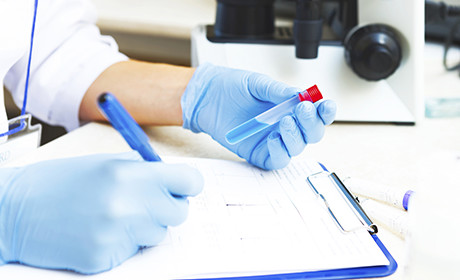Cognicert Pharmaceutical Good Manufacturing Professional
Become acquainted with the best practices for implementing Good Manufacturing Practices — Guidelines for the application of Good Manufacturing Practices (GMP) in Pharmaceutical Manufacturing.
Summary
“Pharmaceutical Good Manufacturing Practice gives guidelines for the production, control, storage and shipment of cosmetic products”. It provides a comprehensive approach for a quality management system for those engaged in the manufacturing, packaging, testing, storage, and transportation of pharmaceutical finished products. Pharmaceutical Good Manufacturing Practice has its basis in other quality management systems, ensuring a smooth integration with those quality management systems. This course enables participants to learn about the best practices for implementing and managing a Good Manufacturing Practices (GMP) for pharmaceutical industry. The participant will learn the different components of a GMP, including the GMP quality manual, required procedures, records, cleaning and contamination control, internal audit and continual improvement.
Who should attend?
- Members of a Quality team
- Professionals wanting to gain a comprehensive knowledge of the main processes of a Pharmaceutical Good Manufacturing Practices (PGMP)
- Staff involved in the implementation of the PGMP
- Staff involved in operations related to a PGMP
- Auditors
Learning objectives
- To Understand the implementation of a Pharmaceutical Good Manufacturing Practice
- To Understand the relationship between a Pharmaceutical Good Manufacturing Practice and compliance with the requirements of different stakeholders of the organization
- To Know the concepts, approaches, standards, methods and techniques allowing to effectively manage a Pharmaceutical Good Manufacturing Practice
- To acquire the necessary knowledge to contribute in implementing a Pharmaceutical Good Manufacturing Practices (PGMP).
Course Agenda
First Day
Section 1 – Introduction to the Regulations
- What are the GMPs
- Intro to the FDA
- Intro to the FD & C
Section 2 – Other Regulatory Agencies
- EU and other regulations
- Importance to our manufacturing
Section 3 – Organization and Personnel Roles and Responsibilities
- Department Roles/Functions
- Interactions
- Training
- Change Control
Second Day
Section 4 – Facilities & Equipment
- Types of Facilities – Solid Dose, Aseptic, Biologic, API
- Facilities and Equipment – the role they play
- Flows – Material, Air, Personnel
- Lighting, Plumbing, & Containment/Contamination
Section 5 – Vendors and Materials Control
- Classification of materials according to function
- Material specifications
- Vendor Auditing – qualifying, and controlling suppliers and contractors
- Control of incoming materials
- Container Closure and other GMP functions
- What the regulations require for reduced testing
Section 6- Process Control: “Master Batch Records and Validation”
- The Validation Master Plan
- Review and Approval of Master Records
- Converting the Master Record to a Batch or History Record
- Predicate rules and Part 11 – What are they really
- Another new paradigm-Process Analytical Technology (PAT)
Section 7 – Packaging and Labeling
- Why is packaging and labeling is so important?
- Controlling Labels and other Printed Materials
- Examining and storing Packaging & Labeling Materials
- Controlling labeling operations
Section 8 – Validation (applying CGMPs)
- Qualification v. Validation
- Protocol Development
- Types of Validation
- Executions
- Final Reports
Third Day
Section 9 – Laboratory Controls
- Sampling
- Analytical methods-Scientific Basis, Approval, & Validation
- Pharmacopeias
- Methods Validation Requirements
- Equipment Qualification Requirements
- Controlling Reagents & Reference Standards
- Laboratory Data-Notebooks, LIMS, & Disks
- Equipment Controls
- Using a Contract Laboratory
Section 10 – Product Release and Distribution
- QA Responsibilities in Product Release
- Why perform testing on finished products?
- Batch Record Review
- Recalls
Section 11 – Records – Reports – Investigations
- Storing Documents and Retains
- When Things Go Wrong
- Getting to the Root Cause
Section 12 – Quality Reviews and Assessments
- PGMP Assessment Fundamentals
- Principles of audit and Challenges of PGMP Assessment
- Internal Assessments
- Management Reviews
- Stages of external Assessments
- Creating a Corrective Action Plan
- The Root Cause Analysis Process
- Corrective and Preventive Actions
- External audit follow -up
Duration: 5 days
Training Methodologies
- Case Study
- Individual Exercises
- Role Play
- Group Exercises
- Group Presentation
- Examination
Assessment and Qualification
Learning is assessed through:
- 3 hours open examination. Passing the exams qualifies the candidate for Cognicert Pharmaceutical GMP Professional (CPD Certificate)
- Practical experience of 25 days with activity log qualifies participants for our Cognicert Pharmaceutical GMP Professional (Implementer Category) I.D Card and Certificate
- Practical experience of 50 days with activity log qualifies participants for Cognicert Pharmaceutical GMP Professional (Lead Implementer Category) I.D Card and Certificate
Self-Study Material, Exam and Certification
Online Training, Material, Exam and Certification
Classroom Training Location Here (Fee to be decided by delivery partners)
| EXAM | APPLICATION DEADLINE |
| February 27 | January 22, 2022 |
| March 24 | February 22, 2022 |
| April 21 | March 22, 2022 |
| May 18 | April 22, 2022 |
| June 22 | May 24, 2022 |
| July 27 | June 22, 2022 |
| Aug 24 | July 22, 2022 |
| September 21 | August 24, 2022 |
| October 19 | September 15, 2022 |
| November 23 | October 13, 2022 |
| December 18 | November 11, 2022 |
Cancellation: 3 weeks before examination attract 100% refund. 0% refund after.


